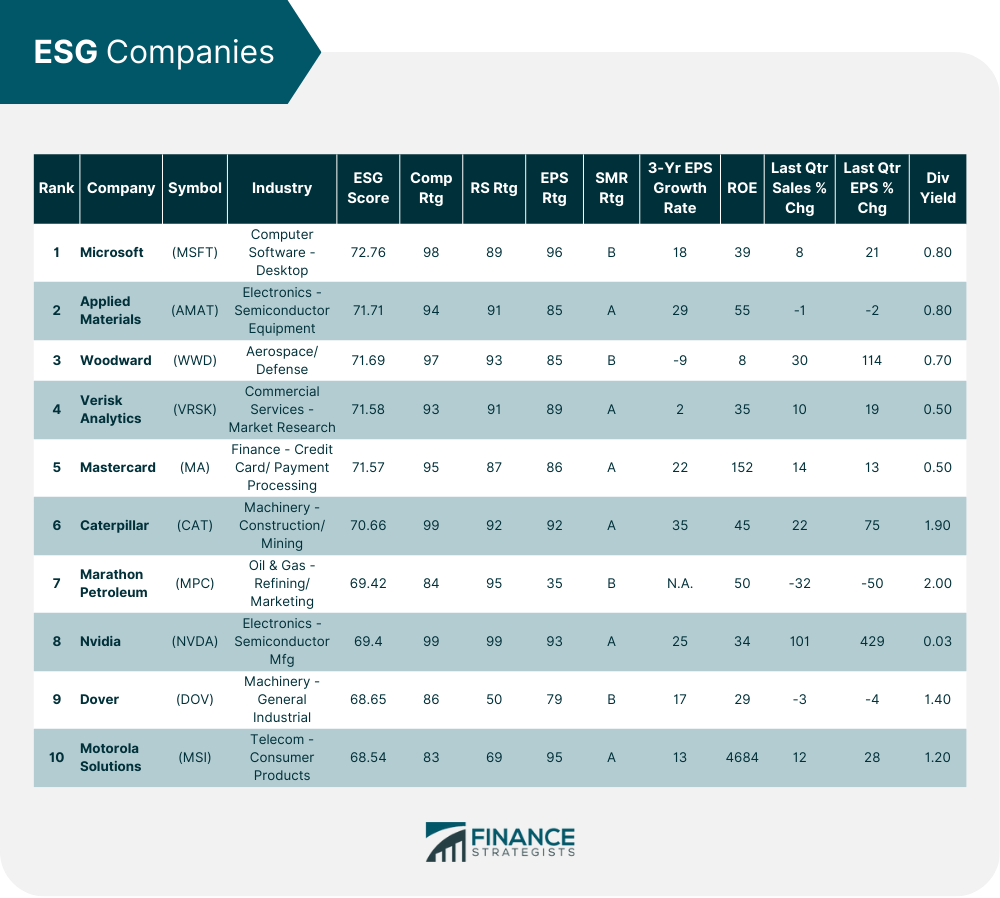Environmental, social, and governance (ESG) investing is an investing philosophy where standards of social responsibility are considered when evaluating a company for investment, rather than only maximizing return on investment. Environmental criteria refers to how well a company performs with respect to their environmental impact. Social criteria refers to how a company manages relationships with employees, customers, and the communities in which it operates. Governance criteria refers to a company's leadership, executive pay, and shareholder rights. The purpose of ESG criteria is to allow investors to identify and invest in socially conscious companies. Investors, particularly newer and younger investors, are increasingly looking to put money only into companies with values that match their own, which is why ESG investing is also sometimes called sustainable investing, responsible investing, impact investing, or socially responsible investing. As of 2024, there are $3.5 trillion in ESG-related assets under management (AUM). In response, more brokerage firms and mutual fund companies have begun offering ESG compliant ETFs and other financial products. Many companies are moving more towards meeting ESG criteria as more investors are trying to align their investments with their values. Here are a few companies ranking high in the ESG criteria: (Source: https://www.investors.com/rese...)ESG Meaning: What Is ESG?
ESG Investors
ESG Companies

Environmental, Social, and Governance (ESG) Investing FAQs
ESG stands for environmental, social, and governance investing.
Environmental, social, and governance (ESG) investing is an investing philosophy where standards of social responsibility are considered when evaluating a company for investment, rather than only maximizing return on investment.
Investors, particularly newer and younger investors, are increasingly looking to put money only into companies with values that match their own, which is why ESG investing is also sometimes called sustainable investing, responsible investing, impact investing, or socially responsible investing.
The purpose of ESG criteria is to allow investors to identify and invest in socially conscious companies.
As of 2024, there are $3.5 trillion in ESG-related assets under management (AUM).
True Tamplin is a published author, public speaker, CEO of UpDigital, and founder of Finance Strategists.
True is a Certified Educator in Personal Finance (CEPF®), author of The Handy Financial Ratios Guide, a member of the Society for Advancing Business Editing and Writing, contributes to his financial education site, Finance Strategists, and has spoken to various financial communities such as the CFA Institute, as well as university students like his Alma mater, Biola University, where he received a bachelor of science in business and data analytics.
To learn more about True, visit his personal website or view his author profiles on Amazon, Nasdaq and Forbes.











